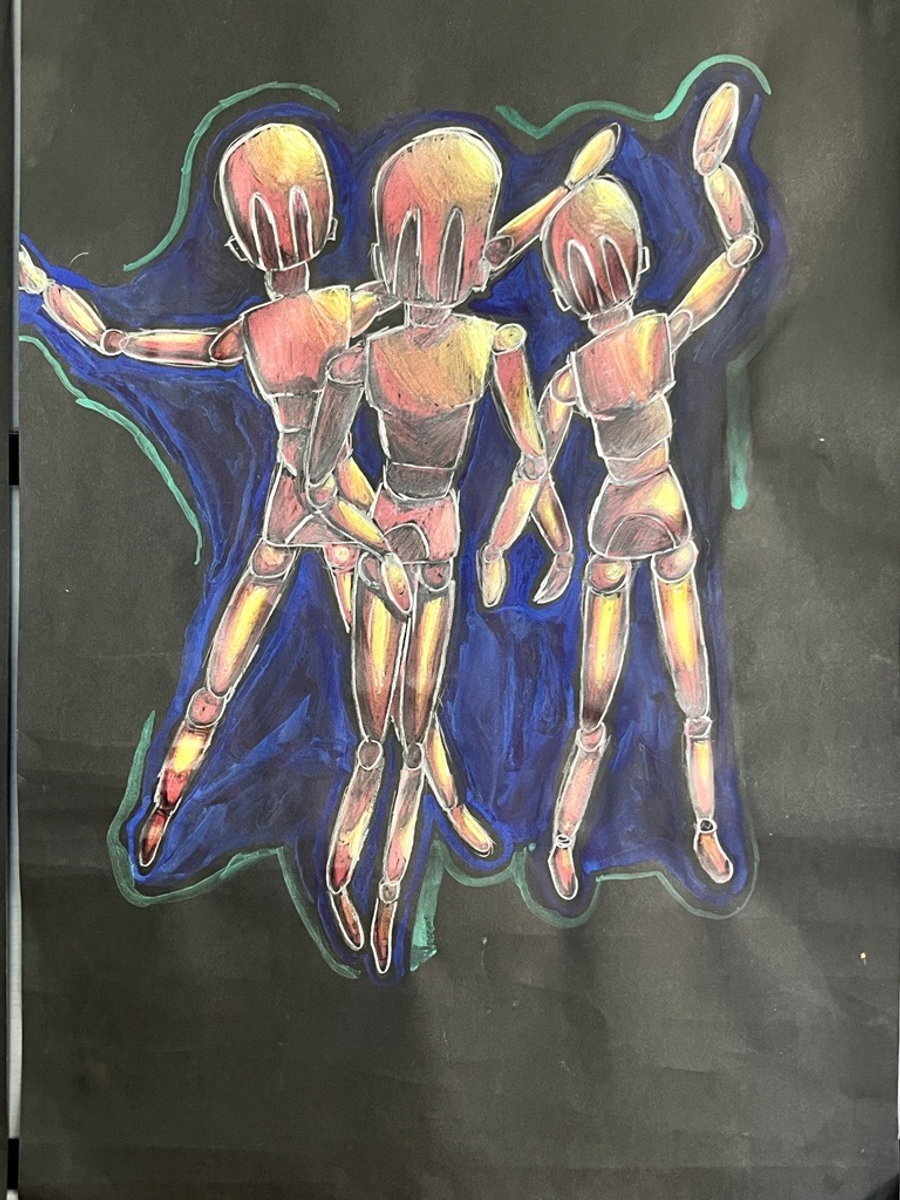Neurodivergence at Ivanhoe
Artwork by Luca Comito, Year 8, Ridgeway Campus

Neurodivergence at Ivanhoe
Artwork by Luca Comito, Year 8, Ridgeway Campus
By Georgie Morrone, Year 10, Ridgeway Campus
I was diagnosed with autism at 13. Like most people I didn’t fully understand what that meant. My understanding of the condition was the low-functioning type of the screaming kid in the supermarket who was older than what you expect or like a boy in my primary school who used to talk to himself and could not tolerate loud sounds or environments without shutting down or overreacting. I found that it was more subtle and, in many ways, harder to deal with. I was not yet acquainted with its nuances. I hadn’t yet learned that it was a spectrum of behaviours, different functioning levels, and characteristics, which can come with advantages and many disadvantages.


I resented the diagnosis and thought that it would make me more of a target at school. There was no support network, either through the school or my friends. I didn’t have friends that would have understood my condition or my autistic behaviour. The only exceptions I found were with other autistic kids. Also, I wasn’t in an environment where the nuances were understood. People would make remarks like “it’s a superpower”, and “autism is not a disability, it’s just a different ability”. Most of the time it feels like a curse not a blessing. The consequences are more likely to lead to isolation with friendship groups disappearing around you, at least it did in my case. Often, I was left wondering what I did wrong. I just didn’t have the ability to pick up on those social ques like other people did.
I was already a member of the GSA (Gender and Sexualities Alliance) and I had continued to attend the meetings. The day after I received my diagnosis I was in a meeting and heard them talking about their experiences being neurodivergent and how that’s affected their learning and relationships here at Ivanhoe Grammar School. This was all stuff I related to as well so I felt relieved that neurodivergent issues were also a topic of conversation and that others, like me, felt that they needed a place to talk about their experiences.


I eventually asked the Senior Years students in the meeting “what’s ‘neurodivergent?” They told me that it referred to a person whose needs, way of thinking, and approach to life differ from the norm due to a pre-existing condition, such as Dyslexia, ADHD, Autism, Tourette’s syndrome etc. I believe at the time it was more colloquially dubbed the “ASD” club. I remember feeling so happy that I found out there was a support network of kids who understood what it was like to be subject to a system that doesn’t always account for their needs, and to be the subject of social scrutiny due to things outside of their control.
These experiences have led me to appreciate that a place where like minded people can meet and feel that they don’t need to conform or “mask” their behaviour would be of great benefit to those like me. The issues of isolation and lack of understanding take their toll on us. It is important that we have a place to escape to, if we need it, or just a place to feel accepted.
Therefore, I and a few others are starting up the Neurodivergence Club again to provide that network. The club is not exclusive and is open to friends of neurodiverse people. However, it is important to state that this is simply a place to feel accepted and not somewhere to be told that you have a “superpower” and shown the occasional “Dhar Mann” video with everyone thinking that it was a job well done, “problem solved.”
The Neurodivergence Club is your place to talk or act as naturally as you like, we will not judge you. If you want to talk about your hyper-fixations, most of us have a few, you are welcome to.